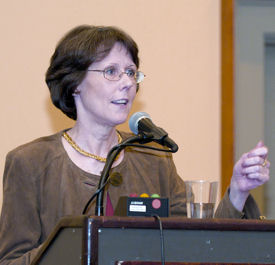Span gaps between physicians, patients
Use active lisenting, self-management and other communications tools to provide better care for patients.ment in medical practices.
Patient-centered care respects the information needs, values and cultural diversity of each patient. To be patient-centered, health care teams need to be aware of issues such as health literacy, language barriers and differing cultural health behaviors and values. Unfortunately, most health care providers are not trained to address any of these matters, and the health system is not designed to provide this kind of care.
So, what can an individual physician or clinician do to deliver more patient-centered care? First, physicians must take a proactive approach to planning and coordinating care in partnership with individual patients and other health care professionals. Such a system depends on enhanced communication with patients and families, among health professionals and within a practice. Practicing such techniques such as Active Listening, Motivational Interviewing, Ask Me Three™ and others can improve the quality of your communication with others.
Excellent communication is at the heart of patient-centeredness. Providers and patients must work together to define problems, set priorities, establish goals, create treatment plans and solve problems along the way. One way to accomplish this is to plan visits in advance on the basis of the patient's needs, care plan and self-management goals, taking into account the patient's cultural identity and personality. Ask yourself the following questions:
- Do you know what your patients want from you?
- Do your patients feel that they have a personal connection with you?
- Do you take the time to listen to and thoroughly answer your patients' questions?
There is good evidence that patient self-management, patient activation or empowerment, collaborative goal setting and problem-solving skills lead to better patient outcomes. Patients are the experts on their lives, so clinicians and practice staff need to use their medical expertise to advise patients about how to achieve their goals and live as fully and productively as they can.
A short video describes what real patients had to say about what they wanted from their health care provider. Visit “Patient-Centered Care” online.



